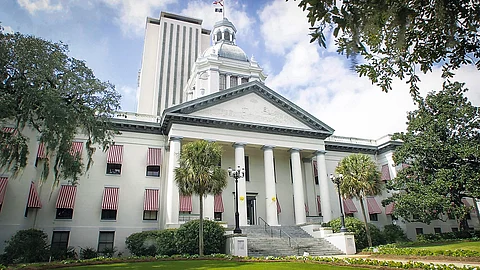

Recent pre-filed Florida Senate Bill 1404 and House Bill 953 have raised significant concerns within the gaming community, particularly among organizations like the Social and Promotional Games Association (SPGA). These bills, if passed, would redefine and criminalize what many consider legitimate sweepstakes gaming operations under the misleading categorization of "Internet gambling" and "Internet sports wagering."
The bill would have widespread effects that would not only impact sweepstakes casino operators, but would impose harsh penalties on the millions of Florida residents who play daily on popular sites like Chumba Casino.
Senate Bill 1404, introduced by Senator Simon, proposes several troubling amendments to Florida's gambling laws. The bill seeks to:
Define "Internet gambling" as any game available online or on mobile devices where money or other items of value are awarded based on chance, regardless of skill involvement
Significantly increase penalties for gambling-related offenses
Criminalize the promotion or facilitation of what it terms "Internet gambling"
Create new felony classifications for various gaming activities
Preempt local regulation of gaming and gambling to the state level
Of particular concern is the broad definition of "Internet gambling," which could potentially encompass many legitimate sweepstakes and promotional games currently operating legally throughout Florida.
House Bill 953, much like Senate Bill 1404, proposes significant amendments to Florida's gambling laws. The bill seeks to:
Define "Internet gambling" as "any game in which money or other thing of value is awarded based on chance, regardless of any application of skill, that is available on the Internet and accessible on a mobile device, computer terminal, or other similar access device and simulates casino-style gaming" (Section 8, amending s. 849.08)
Define "Internet sports wagering" as staking or wagering money on contests of skill or endurance available online (Section 8)
Significantly increase penalties for gambling-related offenses, upgrading many misdemeanors to felonies
Create new criminal offenses related to online gambling:
Operating Internet gambling: third-degree felony (Section 8)
Playing Internet gambling: second-degree misdemeanor; subsequent offenses are third-degree felonies
Playing Internet sports wagering: second-degree misdemeanor; subsequent offenses are first-degree misdemeanors
Create new provisions targeting specific gambling activities:
Trafficking in slot machines (s. 849.155)
Making false statements about gambling equipment (s. 849.157)
Transporting persons to facilitate illegal gambling (s. 849.47)
Prohibiting gambling advertisements (s. 849.48)
Preempt all regulation of gaming, gambling, and lotteries to the state level, preventing local regulation (Section 19, creating s. 849.49)
Revise the Florida Gaming Control Commission provisions by removing requirements related to diversity in appointments and deleting obsolete provisions
The Social and Promotional Games Association, which represents platforms offering engaging experiences that blend gaming with social and promotional elements, has expressed "acute concern" regarding these bills.
In their official response, the SPGA emphasizes that the proposed legislation dangerously conflates legal social sweepstakes games with illegal gambling operations. They warn that this legislative overreach would not only criminalize legitimate businesses but also deprive Florida of tens of millions of dollars in revenue during a time when the state faces significant budget challenges.
"No legislature should dictate to American adults what games they can and can't play on their phones," the SPGA stated. "Outlawing free-to-play mobile games is a drastic measure that Florida voters should resolutely reject."
The SPGA highlights that these bills could have far-reaching consequences beyond what lawmakers might intend. Major companies that regularly utilize sweepstakes promotions, such as Coinbase and Starbucks, could potentially face criminal charges under the proposed language.
Additionally, thousands of small businesses that rely on sweepstakes and similar marketing tools for customer engagement could find their operations suddenly criminalized.
Rather than rushing forward with legislation that could harm legitimate businesses, the SPGA urges Florida lawmakers to engage with industry representatives to better understand the legal and operational differences between sweepstakes gaming and gambling.
Social and promotional gaming has evolved into an integral part of the digital entertainment landscape, with millions of players across the United States enjoying these platforms. These games emphasize fun and interactive gameplay rather than monetary rewards, providing a fundamentally different experience than traditional gambling.